Business
Court disqualifies Timipre Sylva from contesting in Bayelsa guber poll
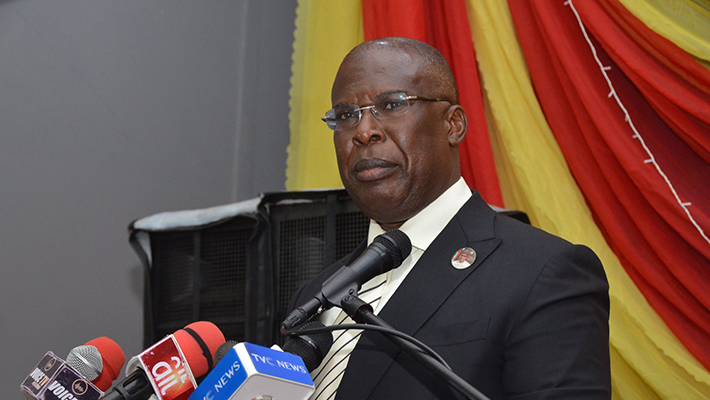
A Federal High Court, Abuja has disqualified the governorship candidate of the All Progressives Congress (APC), Chief Timipre Sylva, from contesting the Nov. 11 election in Bayelsa.
Justice Donatus Okorowo, in a judgment delivered Monday night, held that Sylva, having been sworn in twice and ruled for five years as governor of the state, would breach the 1999 Constitution (as amended) if allowed to contest again.
Justice Okorowo, who agreed with the plaintiff’s argument, further held that if Sylva was allowed to contest and won the poll, he would have spent more than eight years in office as governor of the state in contravention with the constitution.
While citing the case of Marwa vs Nyako at the Supreme Court, Okorowo maintained that the drafters of the country’s constitution stated that nobody should be voted for as governor for more than two times.
According to the judge, the Supreme Court has also ruled in the case of Marwa vs Nyako that nobody can expand the constitution or its scope. He held that if Sylva was allowed to contest the next election, it meant a person could contest as many times as he wanted.
The News Agency of Nigeria (NAN) reports that Chief Deme Kolomo, a member of the APC, had prayed the court to order the Independent National Electoral Commission (INEC) to delete Sylva’s name from list of candidates contesting the Nov. 11 governorship poll.
In the originating summons marked: FHC/ABJ/CS/821/2023 dated and filed June 13, Kolomo had sued Sylva, the immediate-past Minister of State for Petroleum; APC and INEC as 1st to 3rd defendants respectively.
Kolomo had asked the court to determine whether Sylva is qualified to contest in the election, having occupied the office of governor of Bayelsa May 29, 2007 to April 15, 2008 and May 27, 2008 to Jan. 27, 2012.
In the affidavit attached, Kolomo deposed that besides being an APC member, he was also a registered voter in the state. He said INEC recently published the names of governorship candidates for the state, including Sylva’s name.
The plaintiff said he was motivated by the need to vindicate Sections 180 (2)(a) and 182(1)b) of the1999 Constitution, the rule of law and to know the applicability of same as it relates to Sylva based on the above facts.
Kolomo also averred that the question raised by the instant suit was a constitutional one and of grave importance to him as a voter and other voters in the sate so that they would not vote for someone who was not qualified to contest in the poll and had their votes wasted at the end of the day.
But Sylva, who was the immediate-past Minister of Petroleum, in a counter affidavit, asked the court to dismiss the suit for lacking in merit. The ex-minister, through his lawyer, Babayemi Olaniyan, said that he was never elected as the state’s governor on two occasions.
He argued that the Appeal Court in its judgement held that the election that brought Sylva as Bayelsa governor in 2007 was null and void, while directing INEC to conduct a fresh election within 90 days. The lawyer though admitted he was a former governor of Bayelsa, he stressed that he had only been elected once as the state’s governor.
He asked the court to dismiss the suit. Corroborating Olaniyan’s argument, Dr Dennis Otiotio, who appeared for APC, urged the court to dismiss the suit with substantial cost. In the preliminary objection argued, Otiotio said that Kolomo lacked locus standi to institute the suit as he was never an aspirant in the primary election that produce Sylva.
While arguing his case, Prof. Abiodun Amuda-Kannike, who appeared for Kolomo, said contrary to the argument of the counsel, his client had locus, in accordance with the law, to file the suit whether as a pre-election matter or not. He argued that all the sections and cases cited by the defence were unrelated with the instant suit.
He said contrary to their argument, the suit was not statute barred, as the final day which the list of candidates was published was also part of their case. The senior lawyer prayed the court to uphold their argument and dismiss the preliminary objection of the defence.
NAN reports that Justice Inyang Ekwo had, on Sept 26 in another suit marked: FHC/ABJ/CS/575/2023 and filed by an APC aspirant, Ogbomade Johnson, against Sylva, dismissed the case for failure to prove the case with evidence as required by law.
Business
Ghana’s inflation rises to 23.8% — highest in eight months
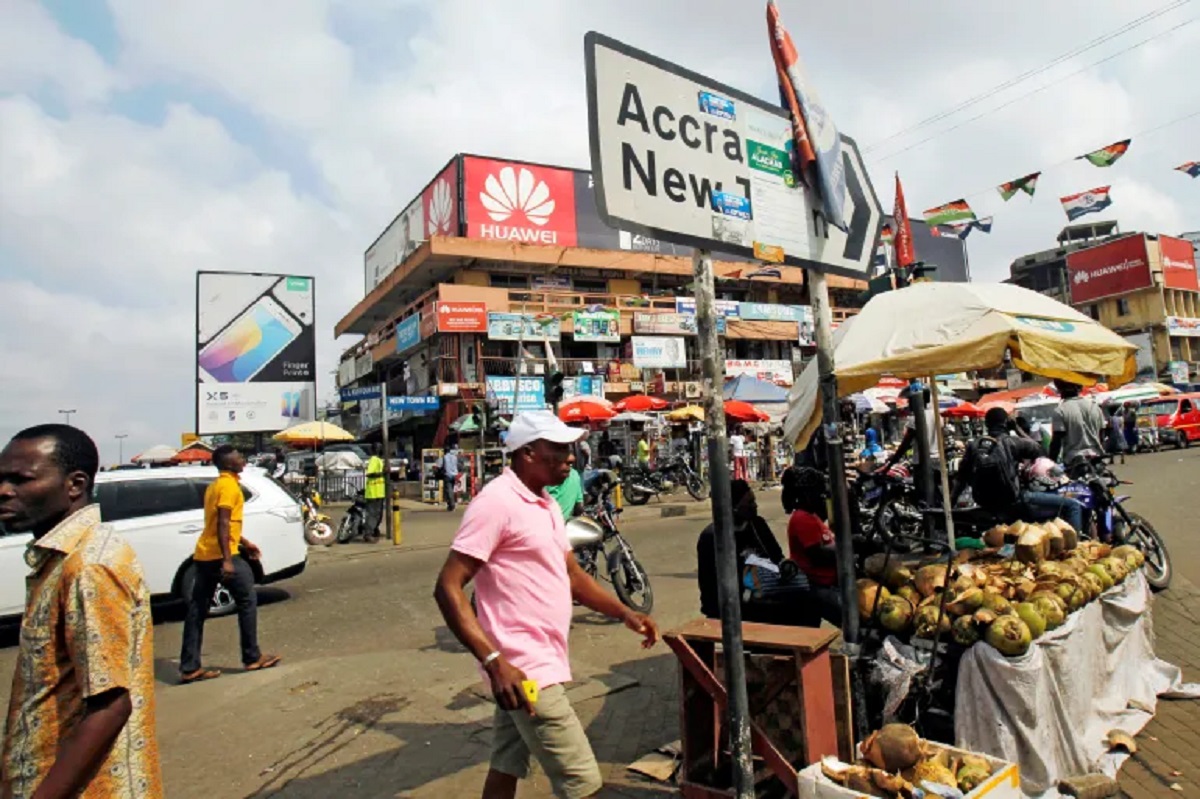
Ghana’s consumer inflation rate rose for the fourth consecutive month to 23.8 percent in December 2024.
Samuel Kobina Annim, government statistician at the Ghana Statistical Service (GSS), announced the figure to journalists in Accra on Wednesday.
Ghana’s inflation rate started rising in September last year, when it rose to 21.5 percent, then climbed further to 22.1 percent in October and 23 percent in November.
Annim said the inflation rate recorded at the end of last year was the highest in eight months.
“The rate of inflation… is the third highest in the last 13 months and highest in the last eight months,” Annim said.
Also, food inflation saw a significant jump, rising from 25.9 percent in November to 27.8 percent in December.
Annim attributed the increase to the contributions from specific food items, such as yams, showing drastic year-on-year price hikes of 63.3 percent.
He also highlighted the need for a dual approach to tackling inflation, addressing both monetary and real-sector issues.
“We do emphasise that there are two perspectives in addressing inflation. One is the monetary side… and the other is the real side, with what we’ve seen with food inflation, more particularly the food that we consume, that are locally produced,” he added.
Annim urged policymakers to focus on production, value chains, transportation, warehousing, and reducing post-harvest losses to stabilise food prices.
“Policymakers put in diverse interventions, rather than focusing on, let’s say, only exchange rate or focusing on just some selected items that do not cover the variety of food items that influence food prices,” he said.
Business
Governor Sanwo-olu signs N3.366trn 2025 budget
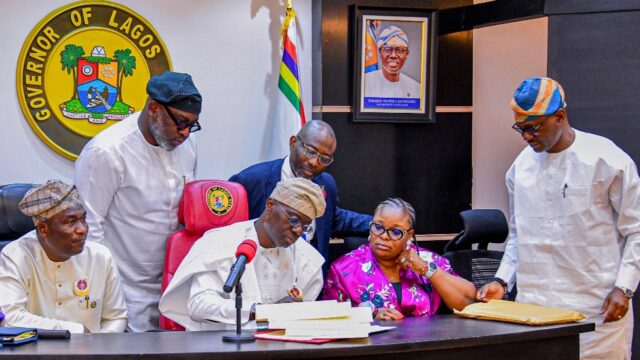
Lagos State Governor, Babajide Sanwo-Olu, on Thursday, signed the 2025 appropriation bill into law.
The Special Adviser on Media and Publicity to the Governor, Gboyega Akosile, made this known in a post on his X handle.
He said the budget size is N3.366 trillion meant for the continuation of the great works of the Sanwo-Olu administration.
Business
Italy extends work visa for skilled workers for 2025
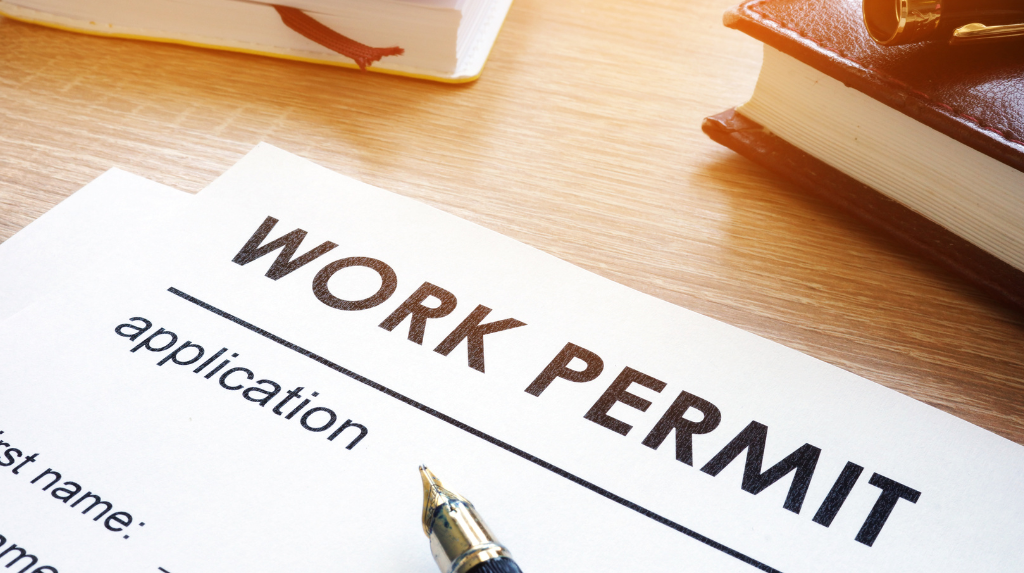
Italy is taking steps to address its significant shortage of skilled workers by keeping its Work Visa for Highly Qualified Workers program open for 2025.
The country, which is known for its rich culture, food, and history, has faced increasing demand in sectors such as IT, healthcare, and green energy.
These industries are crucial to Italy’s economic growth, and the government is working to meet these demands by attracting foreign talent.
Italy is making considerable efforts to improve its labour market by introducing a series of policy changes to simplify the visa application process, DAAD Scholarship reports. The country’s Work Visa program is designed to bridge the gap between the available talent and the growing need for highly skilled workers.
Italy’s work visa aims to address skill shortages
The Work Visa for Highly Qualified Workers aims to address the skill shortages in key sectors, including information and communication technology (ICT), healthcare, and renewable energy. By opening its doors to foreign professionals, Italy hopes to fill critical positions that are difficult to staff with local workers.
This program is expected to boost the economy by bringing in skilled professionals who can contribute to sectors vital to Italy’s long-term economic stability.
The visa allows skilled workers to live and work in Italy while helping the country meet its industrial needs. In 2025, the visa is seen as a way to attract experts from around the world who can fill gaps in sectors where there is a high demand for specialized knowledge and experience.
Key changes to Italy’s work visa policies for 2025
Significant changes have been made to the Italian Work Visa policies to streamline the application process and ensure faster processing times. One of the major updates is the increase in quotas for non-EU workers.
- Last year, the Italian government raised the quota for work permits from 151,000 to 165,000. This adjustment reflects the increasing need for foreign workers across multiple sectors.
- Another notable change is the introduction of digital processes to simplify the visa application. By March 2024, the Italian government implemented digital contracts and the use of certified email (PEC), which have reduced the need for in-person visits to immigration offices.
- In July 2024, Italy also revised its EU Blue Card requirements, lowering the minimum work contract duration from 12 months to six months. Additionally, the salary threshold was adjusted to fall between 1 and 1.6 times the average gross salary in Italy.
The introduction of sector-specific permits for healthcare roles also occurred in October 2024. An additional 10,000 permits were introduced for family and social healthcare assistance positions to meet the growing demand in the healthcare sector.
Streamlined application process for 2025 work visa
The new application process for the Work Visa for Highly Qualified Workers in 2025 is designed to be faster and more accessible. The digital system allows employers to pre-fill applications for their workers, saving time and reducing paperwork.
The application process is simplified, with designated “click days” for submission, including February 5th, 7th, and 12th, 2025, depending on the applicant’s category, reports inform.
Once an application is submitted, both the employer and the applicant will be notified of the decision within a specified timeframe. Digital contracts and integration agreements also reduce the need for physical paperwork, further speeding up the process.
High-demand sectors for Italy’s work visa program
The Italian Work Visa for Highly Qualified Workers targets skilled professionals in several key sectors. These include:
- ICT: Software developers, data analysts, AI specialists, and cybersecurity experts are highly sought after.
- Healthcare: Nurses, physiotherapists, caregivers, and healthcare assistants are in demand.
- Green Energy: Engineers focused on renewable energy are needed to help Italy meet sustainability goals.
- Construction: Skilled laborers, engineers, and project managers are sought to address Italy’s infrastructure needs.
- Hospitality: Chefs, hotel managers, and tourism professionals are needed to support Italy’s vibrant tourism industry.
Where to find jobs with visa sponsorship in Italy
For those looking to apply for the Work Visa for Highly Qualified Workers, several job portals can help candidates find employment in Italy. Some popular websites where job seekers can find roles with visa sponsorship include:
The program offers a valuable opportunity for professionals in high-demand sectors to contribute to Italy’s economy and enjoy living in one of Europe’s most attractive countries.
-
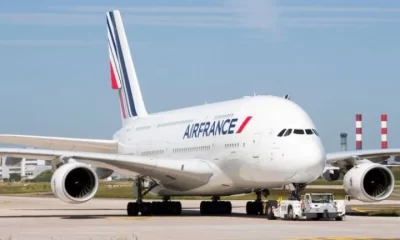
 Business1 week ago
Business1 week agoAir France deboards French national in Abuja airport for unruly behaviour
-
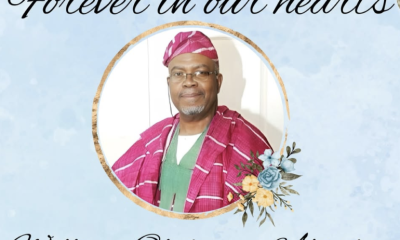
 Entertainment1 week ago
Entertainment1 week agoLala Akindoju loses dad
-

 News1 week ago
News1 week ago‘He’s a dead man walking’ — military threatens to eliminate Bello Turji
-

 News1 week ago
News1 week agoCelebrating Excellence in Nigeria: The Icons of Resilience, Leadership, and Innovation in 2024!
-
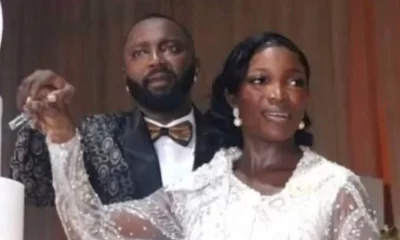
 News1 week ago
News1 week agoLagos state government to probe DJ Kulet’s husband over child molestation allegations
-
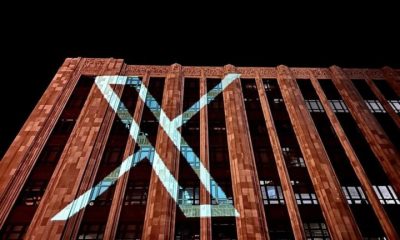
 Business1 week ago
Business1 week agoX to launch payment system this year
-

 News1 week ago
News1 week agoFire razes police station, three buildings in Lagos
-
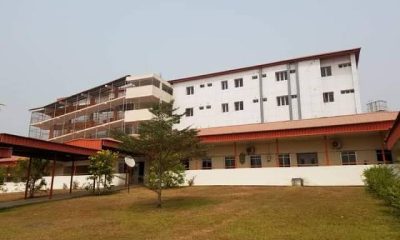
 News1 week ago
News1 week agoUNIMEDTH resident doctors in Ondo begin indefinite strike over poor conditions of service


















